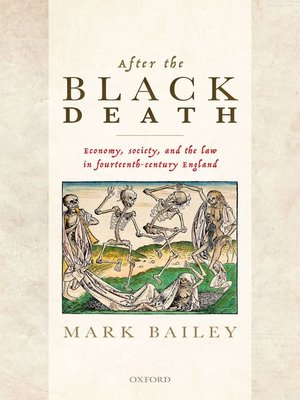After the Black Death
ebook ∣ Economy, Society, and the Law in Fourteenth-century England
By Mark Bailey

Sign up to save your library
With an OverDrive account, you can save your favorite libraries for at-a-glance information about availability. Find out more about OverDrive accounts.
Find this title in Libby, the library reading app by OverDrive.



Search for a digital library with this title
Title found at these libraries:
| Library Name | Distance |
|---|---|
| Loading... |
The Black Death of 1348-9 is the most catastrophic event and worst pandemic in recorded history. After the Black Death offers a major reinterpretation of its immediate impact and longer-term consequences in England. After the Black Death reassesses the established scholarship on the impact of plague on fourteenth-century England and draws upon original research into primary sources to offer a major re-interpretation of the subject. It studies how the government reacted to the crisis, and how communities adapted in its wake. It places the pandemic within the wider context of extreme weather and epidemiological events, the institutional framework of markets and serfdom, and the role of law in reducing risks and conditioning behaviour. The government's response to the Black Death is reconsidered in order to cast new light on the Peasants' Revolt of 1381. By 1400, the effects of plague had resulted in major changes to the structure of society and the economy, creating the pre-conditions for England's role in the Little Divergence (whereby economic performance in parts of north western Europe began to move decisively ahead of the rest of the continent). After the Black Death explores in detail how a major pandemic transformed society, and, in doing so, elevates the third quarter of the fourteenth century from a little-understood paradox to a critical period of profound and irreversible change in English and global history.






